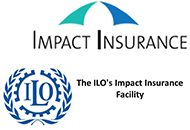The Climate Risk Adaptation and Insurance in the Caribbean project seeks to help vulnerable people adapt to extreme weather events. The project will design and implement products that combine risk reduction and insurance for low-income groups such as small farmers and day labourers in the region. The products target medium-level weather extremes (specifically, excess rainfall and high winds), which are likely to increase in frequency and intensity with climate change. Thus, the project will protect the livelihoods of small farmers and day labourers who are affected by a hurricane or a flood by offering microinsurance and other risk transfer solutions linked with disaster risk reduction and risk management.
The project is designed to be a model for the international community. It will share lessons learned with policy makers at the regional and international level. This will inform decision makers about designing approaches to loss avoidance and reduction, on expanding the access of vulnerable people to these schemes and on the potential services and value addition of a regional facility. The project will demonstrate to leaders from Africa, the Pacific and Latin America whether such an approach would be relevant for risk management in their regions. The project partners will work with delegates to the UNFCCC to determine what role the international community might play in catalyzing similar regional approaches to adaptation, reduction of loss and damage, and insurance.
The Climate Risk Adaptation and Insurance in the Caribbean Project began implementation in 2011. Phase I of the project was implemented over the period 2011 – 2015 and was led by the Munich Climate Insurance Initiative (MCII) and implemented through CCRIF, MicroEnsure and Munich Re in partnership with MCII. Funding for the project was provided by the German Federal Ministry for the Environment, Nature Conservation and Nuclear Safety (BMU) under the International Climate Initiative (IKI). Based on feasibility studies, the project was implemented in three pilot countries: Jamaica, Grenada and Saint Lucia.
The project developed two innovative parametric microinsurance products:
- Livelihood Protection Policy (LPP): available to low-income individuals for coverage against extreme weather events, specifically high winds and heavy rainfall
- Loan Portfolio Cover (LPC): designed for lending institutions such as credit unions and insurance companies
Phase II of the project, which began in November 2016, will continue until 2019. This will involve the introduction and commercial roll-out of the LPP to farmers, fishers, market vendors, small entrepreneurs among others via development/microfinance institutions and other entities such as trade associations. The ambition under Phase II is much greater than Phase I and essentially calls for the participation of other stakeholders in the process – acting on behalf of, or purchasing products on behalf of, their constituents. These “new” stakeholders include government entities, local authorities, cooperatives and industry associations on behalf of their members.
For more information, see the following:
Munich Climate Insurance Initiative
2018: Climate Risk Adaptation and Insurance in the Caribbean
 2011: Climate Risk Adaptation and Insurance in the Caribbean ~ PDF
2011: Climate Risk Adaptation and Insurance in the Caribbean ~ PDF






